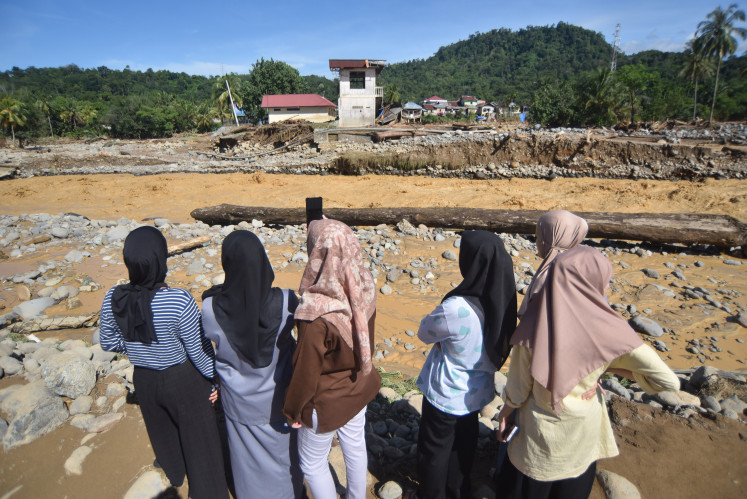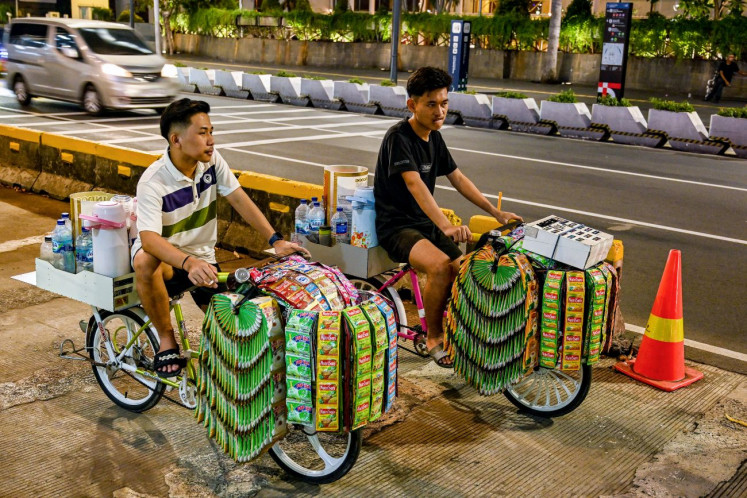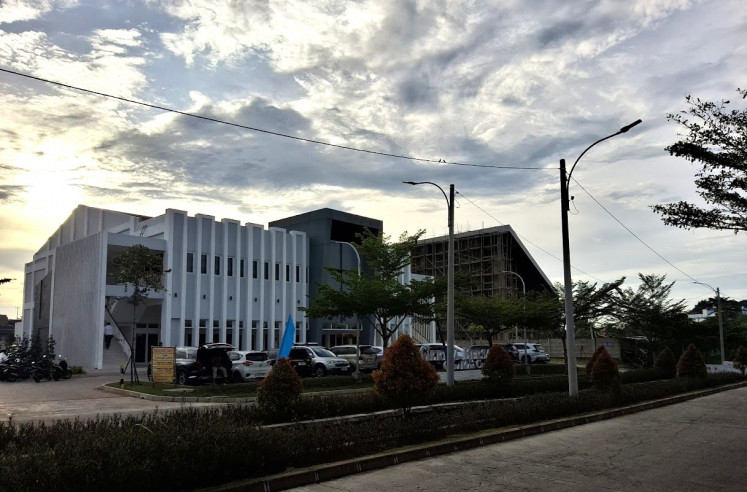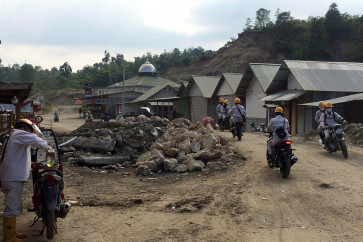Popular Reads
Top Results
Can't find what you're looking for?
View all search resultsPopular Reads
Top Results
Can't find what you're looking for?
View all search resultsAnalysis: Govt, Faisal Basri lock horns over downstream nickel policy
Change text size
Gift Premium Articles
to Anyone
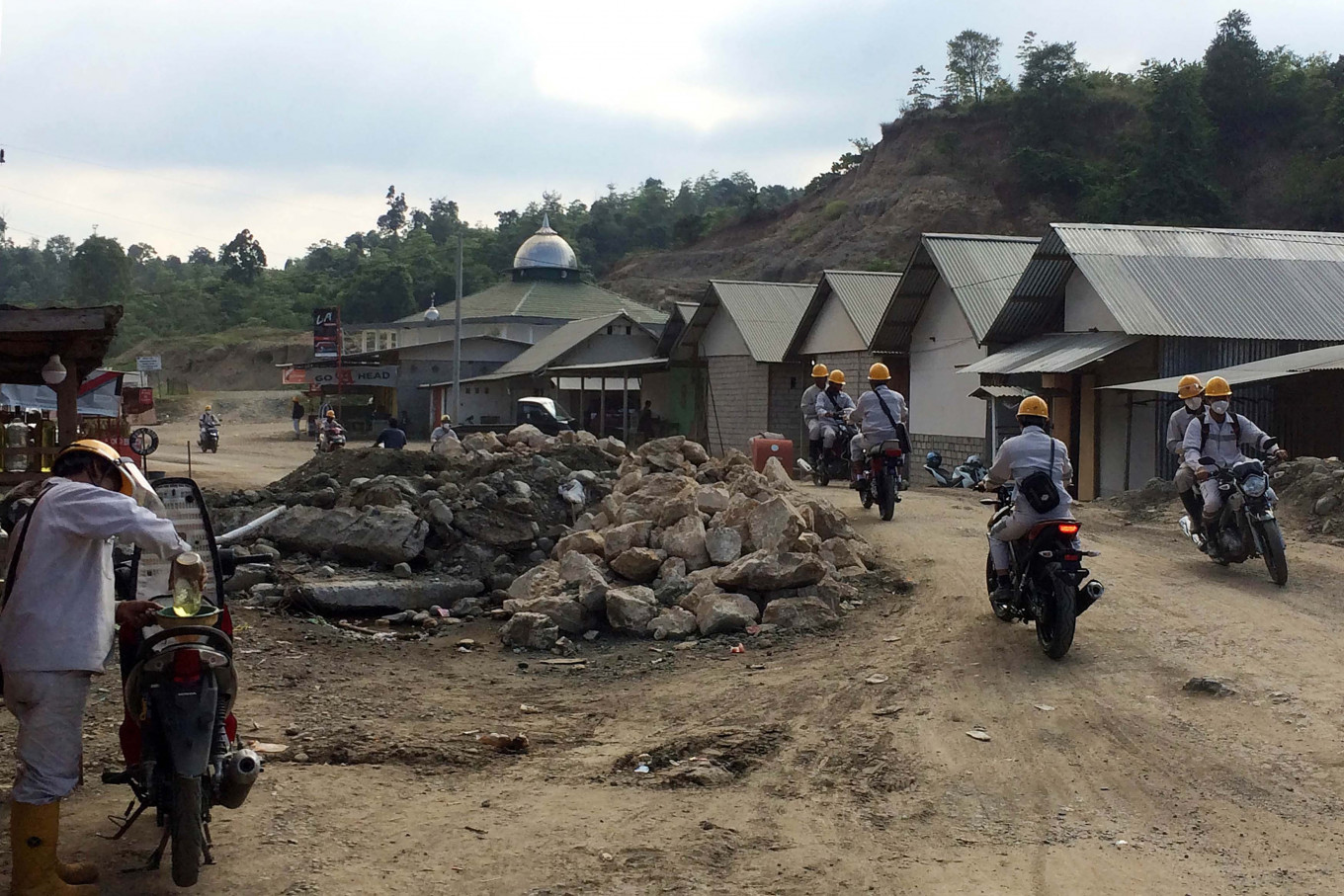 Workers are heading toward or back from the Morowali industrial complex in Bahodopi district, Morowali regency, Central Sulawesi, during a work shift change on around 3 p.m. on Oct. 18. As of October, the industrial estate claimed it had employed more than 15,000 local workers and around 2,500 Chinese workers (JP/Viriya Paramita/Adi)
Workers are heading toward or back from the Morowali industrial complex in Bahodopi district, Morowali regency, Central Sulawesi, during a work shift change on around 3 p.m. on Oct. 18. As of October, the industrial estate claimed it had employed more than 15,000 local workers and around 2,500 Chinese workers (JP/Viriya Paramita/Adi)
P
resident Joko “Jokowi” Widodo’s policy to develop the country’s mineral downstream industry, especially for nickel, is once again facing scrutiny after senior economist Faisal Basri called out the policy for benefitting other countries, especially China, more than Indonesia. Jokowi refuted Faisal’s claims, sparking a series of counterarguments from his camp in defense of the policy.
Jokowi highlighted the importance of his mineral downstream policy for the country’s path to becoming a developed country during his annual address before the People’s Consultative Assembly (MPR) on Tuesday as well as plans to expand to the downstream policy to other sectors such as palm oil and seaweed, and thus bringing more added values to the country.
Jokowi’s downstream policy, especially on nickel, has drawn harsh criticism from Institute for Development of Economics and Finance (INDEF) senior economist Faisal Basri who stated that the policy particularly benefitted China, which would capture 90 percent of the value created, leaving only 10 percent for Indonesia.
Speaking at the INDEF Mid-Year Review discussion on Aug. 8, Faisal explained Indonesia had been shipping 99 percent of its nickel products to China. The specific nickel product in question is nickel pig iron and a low-grade ferronickel that has been processed onshore from nickel ore. To this end, Faisal highlighted that the policy merely serves to support China's industrialization.
Refuting Faisal’s claims, Jokowi questioned Faisal’s methodology in asserting that China and other countries benefit more from the downstream policy. Based on the President’s data, the nickel downstreaming had boosted the industry’s annual export value from Rp 17 trillion (US$1.1 billion) prior to the downstream policy to Rp 510 trillion afterward.
Jokowi further added that from this figure alone, the country could generate larger tax revenues, encompassing taxes such as value added tax (VAT), corporate income tax, employee income tax, royalties and export duties.
However, Faisal remained unconvinced. In an open letter published on his personal blog, Faisal rebutted Jokowi’s counterargument by presenting data that set out to challenge the accuracy of Jokowi’s version of the story, highlighting aspects concerning the state’s revenue and tax facilities. Based on his calculation, which was a bit lower than that of Jokowi’s, Faisal did not deny that nickel smelters for the downstream processing created high-added value, having mentioned that exports from this downstream have surged by 414 percent compared to before the policy was implemented.





